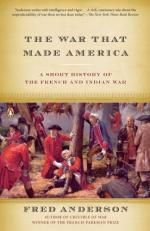|
This section contains 1,241 words (approx. 5 pages at 300 words per page) |

|
Business and Consumer Credit.
In the colonies the shortage of specie (gold and silver coin) made credit an important means of paying for goods. About 80 percent of the goods purchased from Britain was bought on credit. Credit also functioned as a kind of seed capital: it allowed farmers to grow and harvest their products before selling them, a process that could take months and even years to complete. Local storekeepers extended up to nine months' worth of credit to farmers for seed and supplies. The storekeeper, in his turn, depended on about twelve months' credit from merchants in the large cities, who were also given credit by their British suppliers. Southern planters also relied on credit. They extended it to one another or obtained it from English and Scottish merchants. In the late colonial period the British merchants extended increasingly liberal...
|
This section contains 1,241 words (approx. 5 pages at 300 words per page) |

|




